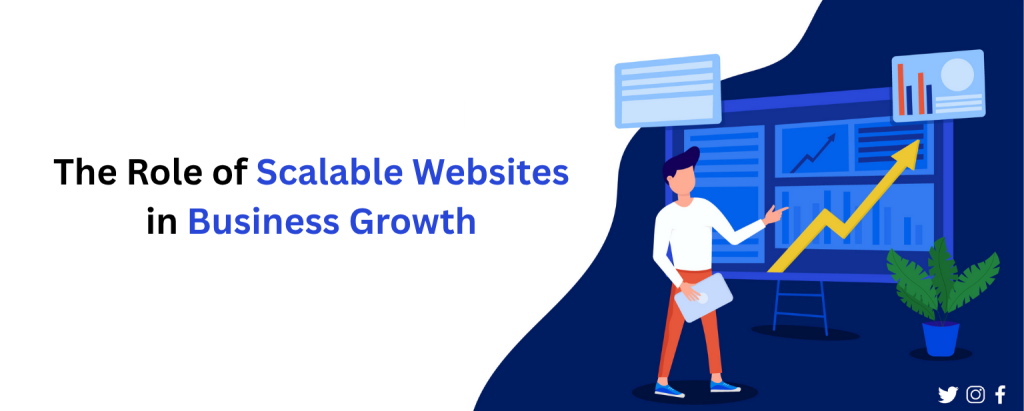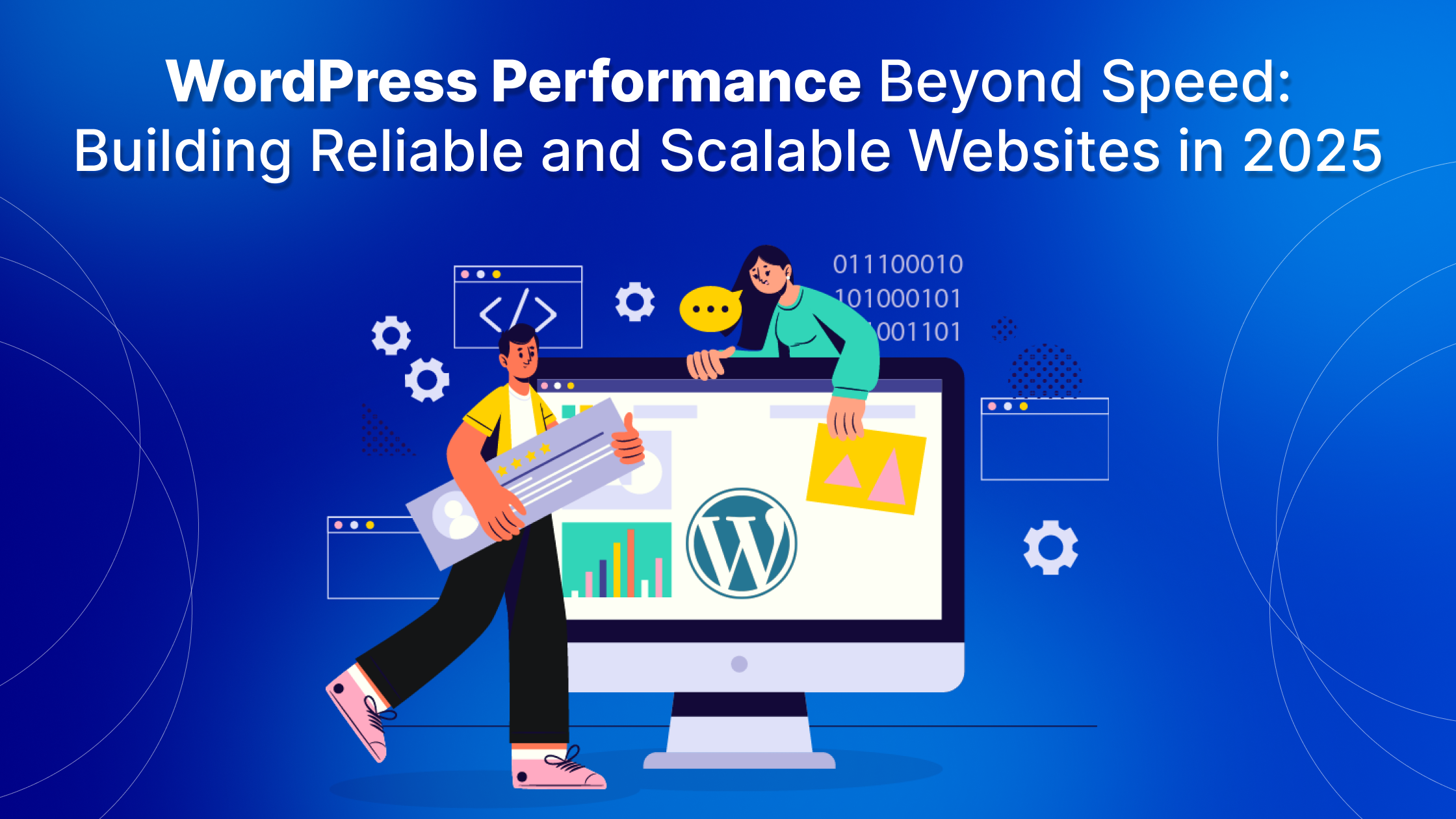Summary
WordPress performance isn’t just about speed anymore. In 2025, businesses need scalable, secure, and reliable websites that grow with their vision. Learn how to optimize beyond speed and build lasting digital success.
When you hear the term WordPress performance, what’s the first thing that comes to mind? For most people, it’s speed. A fast-loading website is essential, no doubt—but in 2025, performance goes way beyond speed. Businesses today need websites that are not just fast, but also reliable, secure, and scalable enough to handle growth without breaking down.
Think about it: what good is a lightning-fast website if it crashes when traffic spikes, or if users abandon it because it’s unstable on mobile devices? Performance in the digital era is about creating a seamless, secure, and scalable experience that builds trust and drives growth.
So, let’s break down what WordPress performance beyond speed really means and how you can use it to power reliable and scalable websites that grow with your business.
What Does WordPress Performance Really Mean in 2025?
Back in the day, performance was mostly judged by how quickly a page loaded. While that’s still critical, it’s no longer the full picture. In today’s competitive landscape, WordPress performance includes:
- Reliability – Your site should work smoothly every time, for every user.
- Scalability – It should handle traffic surges without slowing down.
- Security – Protecting data and preventing cyberattacks is non-negotiable.
- User Experience (UX) – From mobile responsiveness to accessibility, performance means being user-first.
In other words, performance is the foundation of how users interact with your website and by extension, how they perceive your brand.
Why Speed Alone Isn’t Enough Anymore
We all know speed matters. Google loves fast sites, and users expect pages to load in under three seconds. But focusing only on speed creates blind spots.
Imagine this: you run an eCommerce store. During a big sale, thousands of people flock to your site. Yes, your site is quick but suddenly, it crashes because the server can’t handle the load. Those customers? Gone to competitors.
Or picture a SaaS platform that’s blazing fast but gets hit with a data breach. The loss of trust and credibility outweighs any speed advantage.
Performance is like building a house. Speed is the paint it makes the house attractive. But without strong walls (security), a sturdy foundation (scalability), and good wiring (reliability), the house won’t stand for long.
Key Factors That Shape WordPress Performance Beyond Speed
Let’s look at the essential elements that define high-performing WordPress websites in 2025.
1. Scalability
As your business grows, your website needs to grow with it. Scalable websites adapt to increased traffic, new features, and expanding content without falling apart. This means choosing the right hosting environment, database structure, and development practices.
2. Security
With cyber threats on the rise, WordPress performance isn’t complete without airtight security. Hackers don’t care how fast your site is—they’ll exploit vulnerabilities if you’re not prepared. Regular updates, firewalls, SSL certificates, and real-time monitoring are must-haves.
3. Reliability
Downtime costs money and reputation. A reliable WordPress setup ensures your website is always up and running, even during peak hours. Reliability is achieved through quality hosting, optimized code, and consistent monitoring.
4. User Experience (UX)
Performance is also about how users feel when they interact with your site. Is it easy to navigate? Mobile-friendly? Accessible to all users? A great UX keeps visitors engaged and returning.
5. Efficient Code and Plugins
WordPress’s plugin ecosystem is powerful but too many plugins or poorly coded ones can slow down or break your site. Smart developers focus on lean code, custom solutions, and minimizing dependency on bloated tools.
The Role of Scalable Websites in Business Growth

Here’s the thing: growth without scalability is a disaster waiting to happen. If your website can’t scale, your success becomes your downfall.
- E-commerce: A flash sale could crash your store if your site isn’t scalable.
- Enterprises: Managing multiple sites or regions without scalability leads to inefficiency.
- Startups: Scaling users and features quickly is the difference between thriving and failing.
In all these cases, scalable websites keep your brand competitive while ensuring users get a smooth experience—no matter how fast you grow.
Practical Ways to Improve WordPress Performance Beyond Speed
Ready to move beyond speed and strengthen your site’s overall performance? Here are some actionable strategies:
1. Invest in Managed Hosting
Not all hosting is created equal. Managed WordPress hosting offers optimized servers, automatic updates, backups, and better scalability options compared to shared hosting.
2. Use Caching and a CDN
Caching stores static versions of your pages, reducing server load. A Content Delivery Network (CDN) distributes your site across global servers, ensuring faster delivery worldwide.
3. Optimize Your Database
As your site grows, databases can get cluttered. Regular cleanups and optimization keep queries fast and efficient.
4. Secure Your Website
Add SSL certificates, configure firewalls, and update plugins regularly. Consider two-factor authentication and regular vulnerability scans.
5. Reduce Plugin Bloat
Less is more. Audit your plugins regularly and remove those you don’t need. Custom development may be better for performance than relying on third-party plugins.
6. Monitor Performance Regularly
Use tools like Google PageSpeed Insights, GTmetrix, or server monitoring dashboards. Regular audits catch issues before they snowball.
WordPress Performance in Action: Real-World Scenarios
To make this more relatable, let’s look at how performance plays out in different contexts.
- Small Business Website: A bakery uses a Single WordPress site. By focusing on reliability and security, they maintain customer trust and improve local SEO.
- Enterprise Setup: A global company uses WordPress Multisite. Scalability allows them to manage multiple regions without duplicating effort.
- E-commerce Store: An online retailer scales server capacity during sales. This ensures they handle high traffic and maximize conversions.
In each case, WordPress performance isn’t just about speed it’s about stability, scalability, and long-term success.
The 2025 Perspective: Future of WordPress Performance
Looking ahead, performance optimization is going to evolve even further.
- AI-Driven Monitoring: AI tools will predict and prevent issues before they happen.
- Cloud Integration: Cloud-based hosting will make scalability seamless.
- Personalized Experiences: Performance will also mean delivering faster, tailored content to users.
Businesses that embrace these trends now will stay ahead in 2025 and beyond.
Performance as a Growth Strategy
Your WordPress site isn’t just a digital brochure, it’s your growth engine. And in 2025, WordPress performance is about so much more than speed. It’s about scalability, security, reliability, and creating an experience users trust.
If speed is the surface, performance beyond speed is the foundation. Build it right, and your website won’t just keep up with growth it will power it.







